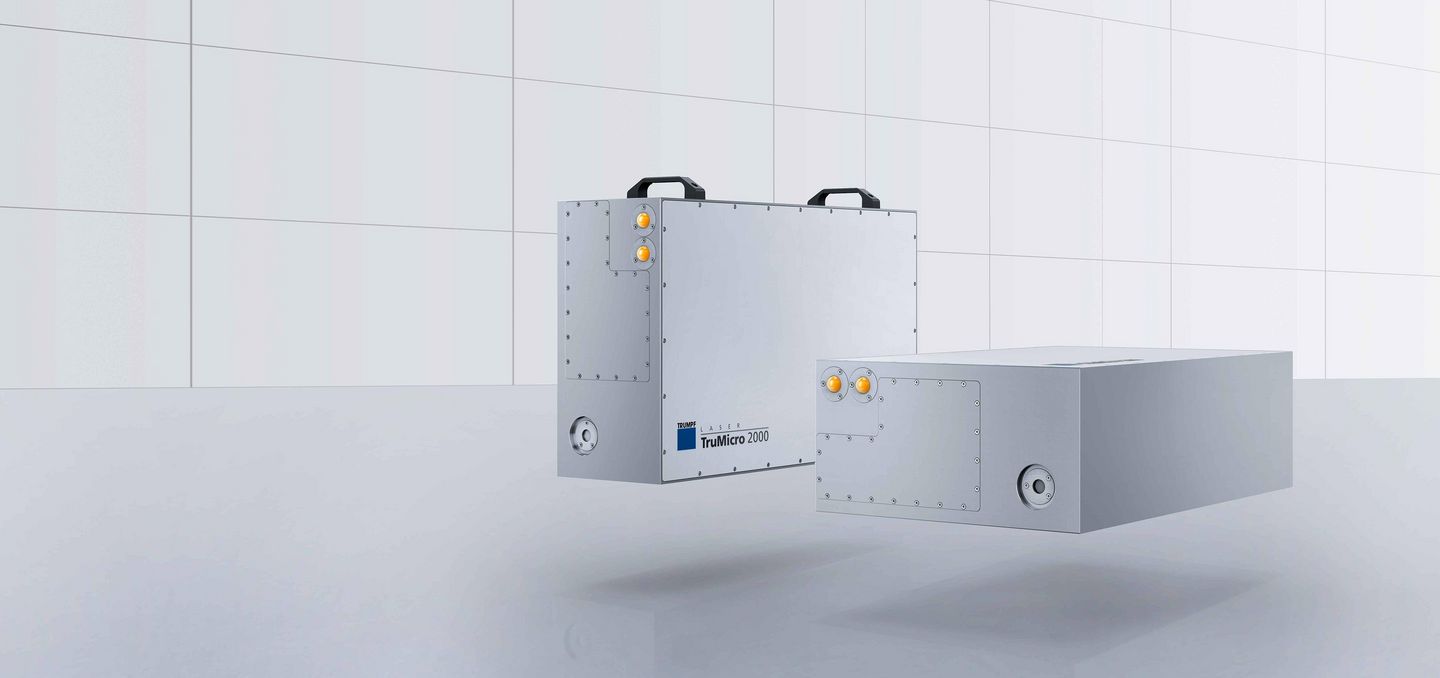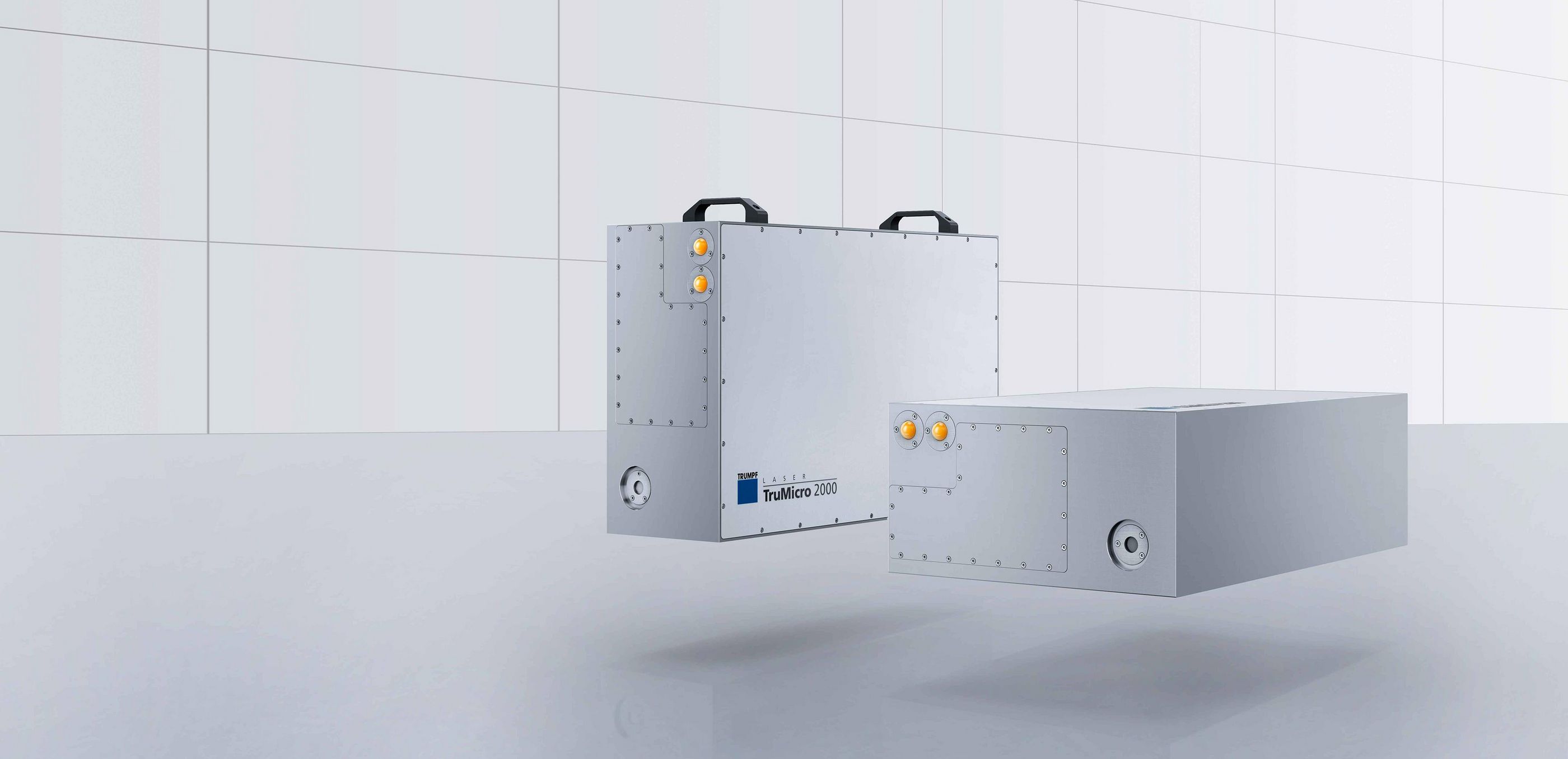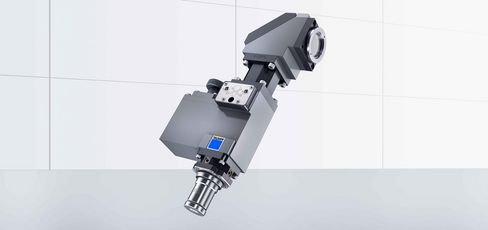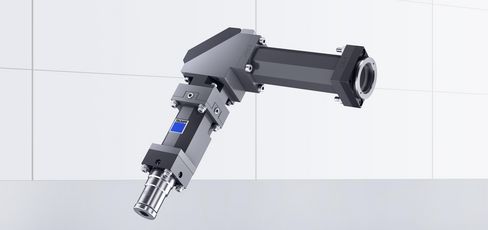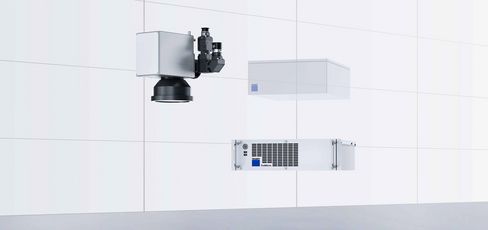Kompakt, leicht, vielseitig – die TruMicro Serie 2000
Ob beim Strukturieren, Abtragen, Schneiden oder Bohren: Das Werkzeug Laser ist in der Mikroproduktionstechnik unverzichtbar geworden. Die faserbasierten Ultrakurzpulslaser der TruMicro Serie 2000 zeichnen sich durch ihre kompakte und leichte Bauweise aus. Die Integration des Lasers wird durch den Einsatz eines Laserlichtkabels für Ultrakurzpuls-Laser (LLK-U) erheblich erleichtert.
Mit ihrer moderaten mittleren Leistung und den vielseitig einstellbaren Parametern eignen sie sich beispielsweise für das Folienschneiden sowie das präzise Strukturieren und Markieren.
Das Laserlichtkabel für Ultrakurzpuls-Laser (LLK-U) ermöglicht eine Maschinenintegration ohne Freistrahlführung.
Betreiben Sie die TruMicro 2000 mit unterschiedlichen Repetitionsraten, Pulsenergien und Pulszügen.
Advanced Pulse on Demand ermöglicht es, Laserpulse mit Triggersignalen variierender Frequenz auszulösen.
Mit der TruMicro Serie 2000 ist die kalte Bearbeitung für viele Anwendungen der Mikrobearbeitung möglich.
Nutzen Sie die Stärken des Lasers zum korrosionsfreien Schwarzmarkieren (Black Marking) von Metallen.
Hohe Strahlqualität ermöglicht Trennen, Schweißen und Markieren von transparenten Materialien

Trennen von ultradünnem Glas
Laser-Modifikationsschneiden ermöglicht das Trennen von ultradünnem Glas (50 µm) mit höchster Kantenqualität. Dadurch wird die Biegefestigkeit deutlich erhöht.

Glasschweißen
TRUMPF TOP Weld Optiken fokussieren Femtosekunden-Laserpulse, um Glas mit Glas oder auch Glas mit Metall hochpräzise zu verschweißen. Das Ergebnis ist eine hochfeste und nahezu unsichtbare Verbindung.

Oberflächenstrukturierung
Ultrakurzpulslaser ermöglichen eine Vielzahl unterschiedlicher Verfahren. Indem der Parametersatz des Lasers variiert wird, können Metalloberflächen gereinigt, strukturiert und graviert werden.
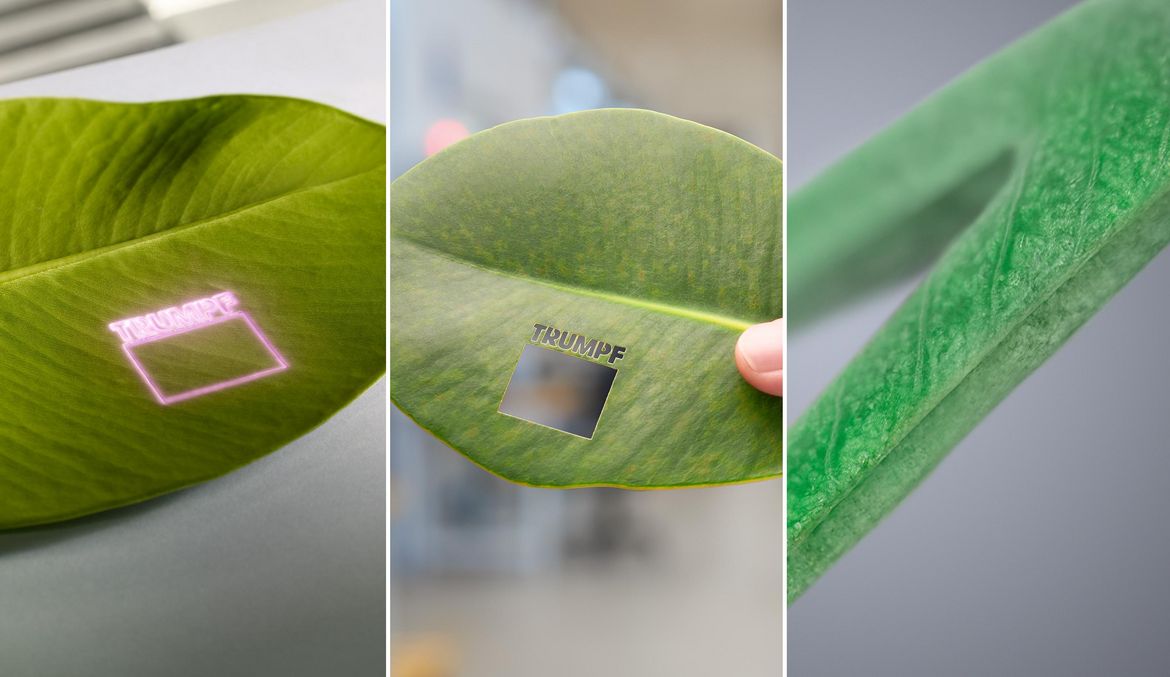
Schneiden von organischem Material
Die Kombination von ultrakurzen Dauern mit hohen Intensitäten ermöglicht eine Mikrobearbeitung mit unvergleichlicher Präzision. Selbst hochempfindliches organisches Material kann ohne beschädigte oder verbrannte Kanten geschnitten werden.

Abtragen von Gold und Keramik
Der TruMicro 2030 schneidet und bearbeitet technische Hochleistungskeramiken für Leistungselektronik und Consumer Electronics. Durch den präzisen Abtrag entstehen Leiterbahnen, Ätzprozesse werden ersetzt – ein umweltfreundlicher Fortschritt.

Schneiden von PCB und Leitertplatten
Mit der grünen Wellenlänge bearbeiten Sie flexible Leiterplatten (FPC) für die Elektronikindustrie und Medizintechnik. Der Laser garantiert schnelles und präzises Schneiden ohne Wärmeeinflusszone. Auch bei Kunststoffen werden beste Kantenqualitäten erzielt.

Schneiden und Abtragen von Lumenschläuchen
Das präzise Schneiden und Abtragen von Lumenschläuchen mit Ultrakurzpulslasern ermöglicht den Einsatz innerhalb der Medizintechnik. Die Bearbeitung weist keine Verfärbungen und Schmelze der Schnittkanten oder der Markierungen auf.

Invar-Schneiden
Die TruMicro Serie bietet perfekte Schnitte von komplexen Geometrien aus hauchdünnen Folien unter 100 µm. Diese bilden die Basis für effiziente Stator- und Rotorpakete in der Elektromotoren-Fertigung.
|
TruMicro 2030
|
TruMicro 2230
|
|
|---|---|---|
| Laserparameter | ||
| Mittlere Ausgangsleistung | 20 W | 10 W |
| Strahlqualität (M²) | < 1,2 | < 1,3 |
| Wellenlänge | 1030 nm | 515 nm |
| Pulsdauer | < 350 fs - 20 ps | < 350 fs |
| Max. Pulsenergie | 100 µJ | 40 µJ |
| Max. Repetitionsrate |
2000 kHz
QCW-Modus: 50000 kHz |
2000 kHz |
| Bauform | ||
| Abmessungen Laserkopf (B x H x T) | 570 mm x 360 mm x 180 mm | 570 mm x 360 mm x 180 mm |
| Abmessungen bei Gerätegröße basic (B x H x T) | 510 mm x 485 mm x 180 mm | 510 mm x 485 mm x 180 mm |
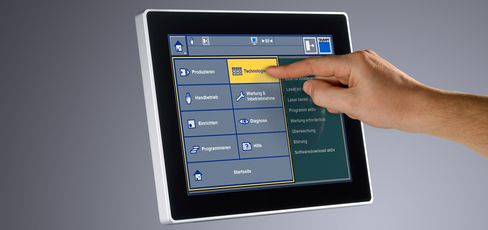
TruControl
TruControl ist die schnelle und einfach bedienbare Steuerung für TRUMPF Festkörperlaser. Sie regelt die Laserleistung in Echtzeit für reproduzierbare Ergebnisse. TruControl verwaltet, steuert und visualisiert die Schnittstellenbelegung. Sie profitieren von einer einheitlichen Steuerungsarchitektur über alle Lasertechnologien hinweg. Die Laser verfügen über Schnittstellen zur Ansteuerung von intelligenten TRUMPF Optiken, z.B. der überwachten Fokussieroptik CFO oder der Scanneroptik PFO. Die Programmierung der Bearbeitungsoptik erfolgt bequem über die Lasersteuerung. Mit Remote Support von TRUMPF erhalten Sie außerdem in wenigen Sekunden per Fernwartung Unterstützung. Dadurch können Serviceeinsätze verhindert oder bestmöglich vorbereitet werden und die Verfügbarkeit des Lasergeräts steigt.
Mit nützlichen Zusatzoptionen arbeiten Sie noch effizienter und prozesssicherer mit den Lasern der TruMicro Serie 2000.

Verzichten Sie auf aufwändige Freistrahlführung und vereinfachen Sie das Maschinendesign deutlich: Anstatt der Freistrahlführung werden die Laserpulse durch die Hohlkernfaser von der Laserquelle zur Optik geleitet. Durch diese thermische und mechanische Entkopplung zwischen dem TRUMPF Laser und der zugehörigen Optik kann der Laser sehr viel flexibler in die Bearbeitungsmaschine integriert werden. Dabei bleiben die Strahl- und Puls-Eigenschaften erhalten.

Lassen Sie Ihre Laser extern durch unsere TRUMPF Experten und Algorithmen überwachen. Bei ersten Anzeichen von Auffälligkeiten kontaktieren wir Sie proaktiv. Ungeplante Stillstände in Ihrer Produktion können so vermieden werden.
Werden komplexe Geometrien z. B. beim Schneiden von Polymerfolien mit Scannern bearbeitet, führen die Beschleunigungs- und Bremswege des Scanners zu variierenden räumlichen Abständen der ultrakurzen Laserpulse auf dem Material. Dadurch ist die Bearbeitungsqualität abhängig von der Bearbeitungsgeometrie. Mit der Option "Flexible Pulse on Demand" hingegen wird die Wiederholrate an die Scangeschwindigkeit angepasst und somit konstante Pulsabstände ermöglicht. Somit ist das Prozessergebnis nicht nur unabhängig von der Bearbeitungskontur, sondern zugleich auch die Prozesszeit verkürzt.
TRUMPF bietet Ihnen alle Komponenten, die Sie zur Strahlführung vom Laser bis zum Werkstück benötigen. So auch diverse Fokussieroptiken, die sich in vielen Jahren industriellen Einsatzes als präzise und zuverlässig bewährt haben. Die Optiken sind leicht integrierbar – sowohl in Stand-Alone-Bearbeitungsstationen als auch in kompletten Fertigungslinien. Der modulare Aufbau ermöglicht es die Optiken stets an den Lasertypen sowie an die unterschiedlichen Bearbeitungssituationen anzupassen.
TOP Cleave Schneidoptik
Die Fokussieroptik TOP Cleave-2 PRO ist eine Bearbeitungsoptik zum hochdynamischen Schneiden von transparenten Materialien wie Glas oder Saphir.
TOP Weld Bearbeitungsoptik
Die innovative Bearbeitungsoptik zum zwischenschichtfreien Schweißen transparenter Materilien.
Scanner
Je nach Land sind Abweichungen von diesem Produktsortiment und von diesen Angaben möglich. Änderungen in Technik, Ausstattung, Preis und Zubehörangebot sind vorbehalten. Bitte setzen Sie sich mit Ihrem Ansprechpartner vor Ort in Verbindung, um zu erfahren, ob das Produkt in Ihrem Land verfügbar ist.


